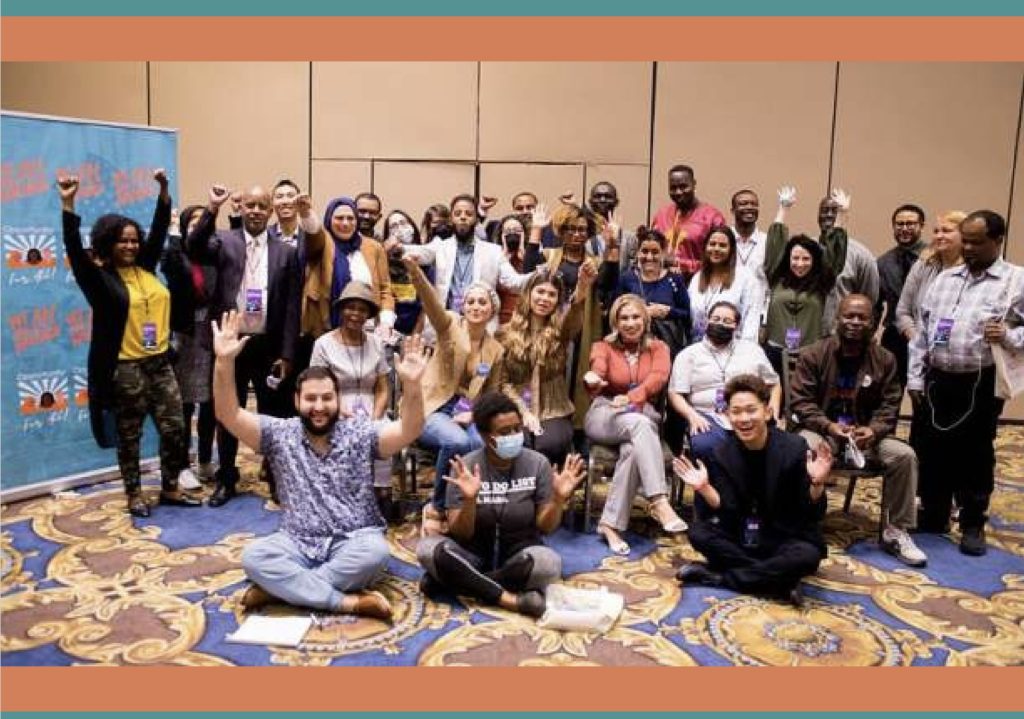According to the UNHCR’s Global Trends report, 89.3 million people had been forcibly displaced worldwide by the end of 2021. Yet, for many Americans, the possibility of becoming a refugee seems abstract and detached from their day-to-day reality. Not so for me.

Basma Alawee
When I first arrived in Florida with my husband and small child in 2010, I instantly was hit with a wave of discrimination. Though my family and I had escaped persecution in Baghdad, Iraq, we regularly endured verbal assaults and harassment going about our day, solely based on our religious identities. Just as bad, the American job sector deemed my “foreign” engineering credentials as “invalid,” derailing any hopes of continuing my career stateside.
My journey was and is not unique. There are hundreds of refugees and immigrants of various nationalities across the American South that are facing the same challenges that I once did. What’s worse is that they are doing so in an increasingly toxic political climate that threatens to further cement these systematic obstacles.
The attacks on unaccompanied children, Black migrants, and asylum seekers over the last several years have fueled a large scale increase of xenophobia that infiltrates all sectors of society, but is most easily seen in the electoral arena. In my home state of Florida, Governor Ron DeSantis has built a political platform around targeting refugee and immigrant communities actively promoting overcriminalization efforts like the ‘Border Strike Force’ to to normalize local attacks on asylum seekers and immigrants. Politicians in Tennessee are similarly mobilizing against asylum seekers by calling for the reinstatement of the Trump-era public health policy, Title 42, as an immigration deterrence tactic.
Organized Hope in Search of Funding
These sentiments should not come as a surprise. For years, the United States has known about the South’s legacy of discrimination, especially against Black and Indigenous people of color and other marginalized groups. Yet, it is essential to recognize that there is another legacy in the South. It’s a story of resilience and reimagination, forged through community organizing by people with lived experience who work daily to keep their communities safe.

Opportunity for All leaders from across the country gather together in October 2021. They each have participated in a leadership development training program for refugees and lead national and state-based advocacy and organizing to welcome and protect those seeking freedom, safety, and refuge in the United States. (Photo by Carolina Kroon)
For many Black and Indigenous people of color, community organizing has been rooted in a legacy of survival, and such is the case for formerly displaced people too. Organizations such as Unbound Philanthropy have noted how refugees, like undocumented immigrants or other constituents, are part of their community and desire to engage in advocacy. By funding these local leaders and their organizing efforts, we have seen that it is possible to pass legislation even in conservative states that can protect our communities.
Tennessee provides ample examples of this. In that state, a refugee and immigrant-led initiative was victorious in creating community IDs. Leaders also won a professional credential victory, which would help refugees and immigrants have their professional credentials validated and help them integrate into the workforce more fully.
Refugees across the South are organizing advocacy efforts in their states to squash anti-immigrant and anti-refugee policies with fearless storytelling and engagement. Florida and Louisiana are some of the Southern states where refugee and immigrant leaders have been working hard to organize refugee advocacy days to shift elected officials’ understanding of refugee resettlement and asylum.
They are accomplishing this with little relative support from philanthropy. According to an analysis from the National Committee for Responsive Philanthropy, from 2015-to 2020, foundation funding to benefit immigrants and refugees made up just 1.3% of total funding in the U.S. Within that amount, funding for the South only made up 9%, making the foundation funding for immigrants and refugees in the South just 0.6% of all funding to benefit the South.

Moving Beyond Survival
While having to navigate my new life in a new culture in the South was challenging, these experiences have shaped me into the effective leader that I am today. Recent refugees from across the world including Afghanistan, Ukraine, Cameroon, and Haiti should not have to face the same obstacles to re-establish their lives, seize economic opportunities and thrive in the United States.
Short-term wins like the ones we are seeing in Tennessee are possible across the South, but more are needed. The truth is that systemic change that stifles anti-immigrant and anti-refugee legislation and sentiment requires more resources that are currently being allocated. Grantmakers who want to help build a long-lasting movement in the South must be committed to targeted community investments that build an inclusive leadership pipeline that actively supports refugee and immigrant youth.
Yes, this work takes time. But there is more than enough evidence that shows that when funders build, share and wield power with refugee leaders in the South like myself, progress—and systemic change — can be achieved. It is by equitably working together that we can build a more diverse and welcoming future where all communities can thrive – here in the South, and beyond.
Basma Alawee, a former refugee from Iraq, is the National Campaign Director for We Are All Americaof National Partnership of New Americans.














































































































































































































































































































































































































Leave a Reply